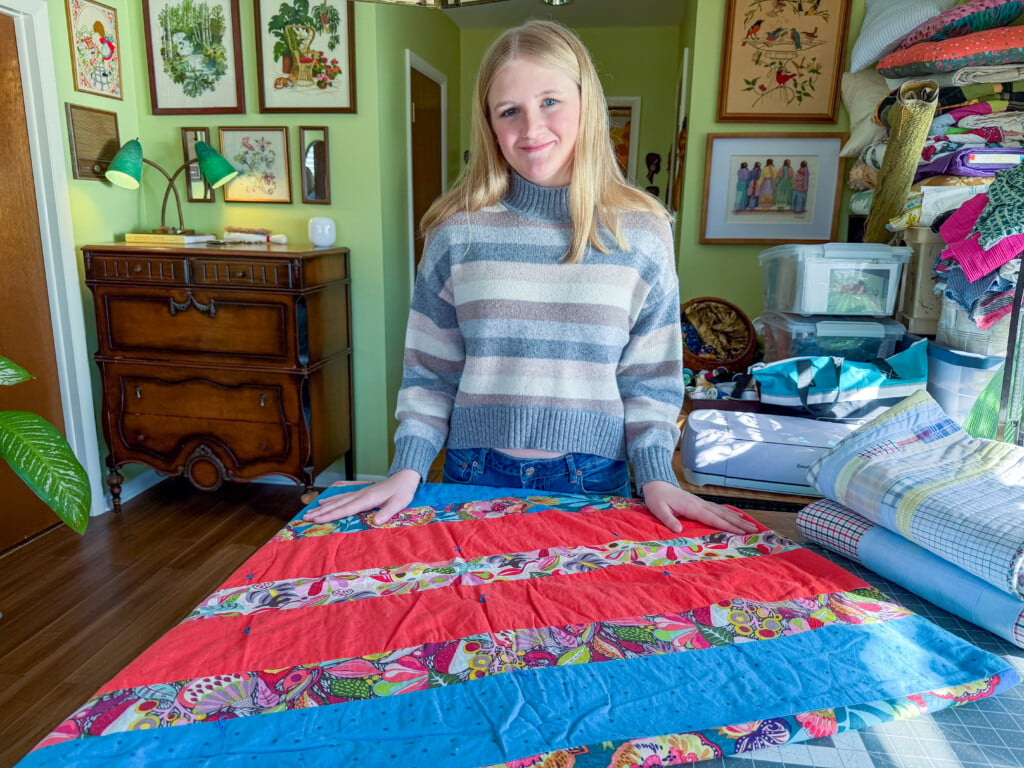Sun Protection for Children and Babies
Sponsored by Saint Francis Children's Hospital
Dr. Johnathan Ledet, with Warren Clinic Dermatology and Saint Francis Children’s Physicians, answers questions about protecting kids’ skin and eyes. Watch the video below, or read the following transcript.
TK: Why should parents be concerned about protecting their children’s skin and eyes from sun exposure.
Dr. Ledet: It’s important for parents of all nationalities to protect their kids’ skin from the sun, because their skin can burn. Sunburns and sun exposure lead to skin cancers over time. The frequency of sunburns is correlated with skin cancers later in life. Sunburns are also painful and uncomfortable.
TK: If my child has dark skin or tans easily, do I still need to protect their skin from the sun?
Dr. Ledet: Yes. I tell parents that every skin type will burn. The darker you are, the longer it takes for you to burn. So, whether you’re a white person, Asian, an Indian person or an African American person, it is important to protect your skin from the sun because you also will suffer sun damage. I primarily do surgery, and I have taken skin cancer off people of every ethnic background.
TK: What should parents know about protecting their child’s skin?
Dr. Ledet: I tell parents the best sun protection is clothing. I have a daughter who has eczema, so she is very sensitive to sunscreen. We can only use physical blockers like zinc or titanium because her sensitive skin reacts to the chemical blockers. You can tell when my kids are at the pool because they are the ones with the long-sleeved shirts, they have the swimsuits that go all the way to their knees. They wouldn’t wear the ones that go all the way to their ankles, otherwise I would have them do that.
TK: How should chemical sunscreen be used?
Dr. Ledet: Chemical blockers work very well. It’s important to reapply. Apply the highest SPF that you can find. There are lots of things that say, “30 and 70 are the same.” They are the same in a laboratory setting, and they assume perfect use. However, there have been numerous studies that show most people only put sunscreen on about half or a third of what is required. So, it is very important that we apply sunscreen, and that we reapply sunscreen liberally. I like the clothing because it never wears off, and we only have to protect the areas that are not covered by clothing.
TK: Are there certain times of day that are safer to be outdoors than other times of day?
Dr. Ledet: Yes. You’re referring to is the UV index. Usually around the latitude we are, the sun is going to be the most intense between 10 a.m. and 2 p.m., and that’s when we want to try to avoid the sun. If we’re not able to avoid the sun during those times, we want to increase our amount of sun protection with wide-brimmed hats, sun-protective clothing, etc.
TK: Are chemical sunscreens safe?
Dr. Ledet: Chemical sunscreens are safe. Physical sunscreens are also safe. There’s been a lot published about sunscreens and how some of them are detectable in the blood, but we have not been able to correlate that with anything. So, yes, sunscreens are safe. The physical blockers are inert. The chemical blockers are fine. If you have sensitive skin, you want to use zinc or titanium. Zinc is actually the best sunscreen because it blocks all of the rays that you are subjected to. It also stays on a little better. The downfall with zinc, which companies are rapidly trying to correct, is that it goes on kind of white. So, the tendency is to rub it in, which makes it thinner, and then you get less sun protection.
TK: How much sunscreen should we be using?
Dr. Ledet: For the average person with arms, lower legs, chest and back exposed, more than an ounce or about a shot-glass worth. On a kid, that’s going to be a little less because they’re smaller. Parents might think of it as the little 30 ml cup that comes with some medicines.
TK: How often should that be reapplied?
Dr. Ledet: Every two hours, but, realistically, most people don’t reapply within two hours. And most people don’t put it on as thick as they’re supposed to. So, if you start off with a higher-quality sunscreen, you’re going to be left with more protection as it deteriorates than if you started with, let’s say, a 30 SPF.
The sun makes your skin burn, but it also makes it age because it breaks down the components of your skin. The skin becomes tougher and loses elasticity. So, if you want to look more youthful, instead of paying for Botox in 40 years, sunscreen every day is your best friend.
TK: What about protecting eyes from the sun?
Dr. Ledet: The sun causes aging, not only in the skin, but also the eyes. UV exposure to the eye causes different parts of the eye to break down. You can also get a corneal sunburn. UV exposure also accelerates cataracts. The more sun protection we can have for both the skin and eyes, the better, for kids and adults.
TK: What kind of sunglasses will protect children’s eyes?
Dr. Ledet: Choose sunglasses that say they block 96, 98 percent of UV light. Most sunglasses now, even an inexpensive pair of polarized sunglasses, are going to protect eyes from the sun. Also, having car windows tinted can protect your little ones from the sun’s powerful rays.
TK: Does all of this apply to infants?
Dr. Ledet: The official recommendation is that we do not use sunscreen on infants under 6 months of age. For those little persons, we need wide-brimmed hats, sun-protective clothing and shade. If they’re older than 6 months, you can safely use sunscreen. Most of the baby sunscreens are physical blockers because they’re more inert, so your child would be less likely to have a problem.
TK: What should parents do if their kids do get sunburned?
Dr. Ledet: First, determine how bad the sunburn is. If they’re in pain, reach out to their primary care provider or to a dermatologist. Sometimes we use topical steroids to help calm down the inflammation. You can use cool compresses or an ointment like Vaseline that helps speed the healing of the skin. Some people use Silvadene, but almost everyone has Vaseline readily available. Be careful with aloe. If it’s in a gel formulation, it may have alcohols. If the sunburn is very robust, reach out to either the pediatrician or to a dermatologist to get it treated.
TK: What do you think of the idea of exposing kids to the sun as a protective measure?
Dr. Ledet: I’ve had patients call it “getting a preemptive burn” before they go on vacation, so they don’t burn later. This always comes up, and it’s not something I recommend. What I tell patients is that a burn is your skin is trying to protect itself from the sun. If you put on sunscreen, it doesn’t stop you from tanning, it stops you from burning. That’s where the damage is. And, as we know, that leads to skin cancers down the road. Basal cell carcinoma, squamous cell carcinoma and melanoma.
I think it’s very important that we stress sun protection from an early age. I have two daughters, and they know as soon as they’re going to go play outside, they wear a wide-brimmed hat, eye protection and, most importantly, sunscreen.
TK: We’re in the sunny summertime, but sun protection is year-round, correct?
Dr. Ledet: Some of the worst sunburns I have seen have been off-season on “cloudy” days. So just because it is a cloudy day does not mean you will not sunburn. It is very important to protect your skin year-round. Now, in the winter, since it’s cold outside, we tend to cover up more, and the clothing affords us some protection. It is very important that we protect our skin, not only in the summer, but in every season.




